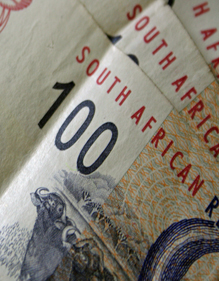
We entered into the new South Africa unprepared. Although corruption is a global cancer, South Africa can do better.
It is time to take stock and review what happened from 1994 to date, and what needs to happen here going forward.
Corruption is a reality. There is massive evidence of that. Billions worth of tax-payers’ money is lost through corruption. It is time for an intervention that takes us out of the box.
It has become habit that people mention corruption as a political tool, rather than a social ill that needs to be dealt with progressively.
The web of corruption is so wide that even those who claim to be clean have merely not been caught yet.
Of course this is a bit of a pessimistic view, but it carries with it a lot of substance.
The question is what do we do?
A process needs to be initiated that would turn some of the people trapped in corrupt cycles into the soldiers who destroy corruption – similar to how some people who participated in apartheid have become the greatest supporters of our democracy.
Some of them have really changed. Is there a link between the struggle and the current level of corruption and some spirit of self-entitlement?
Proper research would have to be done to answer the question.
The reality is that corruption has become a fashionable word used by anyone who wants to fall in a particular league.
It is correct to fight corruption, nothing wrong with that.
But this generation must also contextualise the current corruption activities and somehow determine lessons learned and chart a way forward.
We need to open a new page.
It is easy to point to other people as the corrupt devils and point at ourselves as angelically clean. We need to ask hard questions: do we need our leaders and our people in general to be haunted by acts that they regret and – if they knew better – would not have gone that route?
Could we be able to recover some of the funds lost to corruption through a process that would encourage South Africans to come clean?
The question I am asking myself now is, whose corruption is the Sunday paper exposing next week? Corruption that happened six years ago.
It is not possible to fight corruption in our current state as a country. There are too few soldiers clean enough to fearlessly fight it. Corruption has now become a web that needs to be dismantled.
The political contests between cadres and political parties are that of the devil and angel: I’m clean and you are corrupt. Corruption is only fed to the media for political point-scoring.
This paper proposes to the president of South Africa, to the government and to all South Africans and organisations within our borders to start thinking of some sort of an amnesty or should I call it the “TRC of corruption”?
We have reached a point where we need political parties and government to focus on the people.
South African politics have become the politics of corruption. People of South Africa are ignored as political parties accuse each other of corruption and falling short on helping the public overcome their daily challenges.
It cannot go on like this, it has to stop somewhere.
This is the proposal:
• For a broader anti-corruption awareness programme to be launched.
• For harsher legislation that will make the monitoring of corruption more effective.
• For the establishment of a commission that would look into an amnesty/corruption TRC at all levels, for politicians, public servants, private companies and even ordinary citizens to come forward and to come clean.
• To pronounce the start of a no-corruption generation.
Noises about corruption are not going to help. We must bite the bullet. We must be realistic. Should we fail to deal with this reality, the work of our struggle heroes will be lost.
After this process, there will be no excuse for any corrupt activities. The prison term of the corrupt person must be linked to them working and somehow repaying the debt, unless sufficient assets can be seized to repay the full amount.
We need more soldiers to fight corruption. It is time we burn the corruption web.
The opinions expressed here do not necessarily reflect the views of Corruption Watch.

